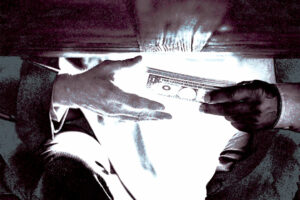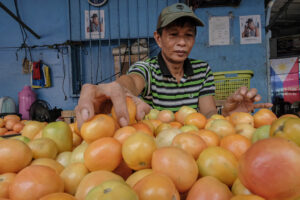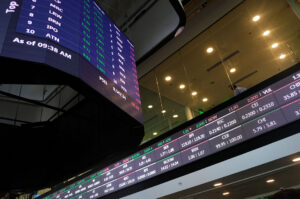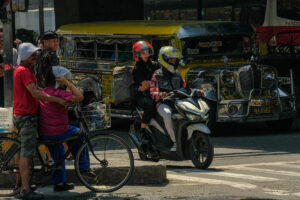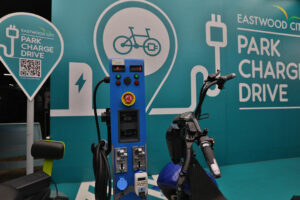Corruption is a plague that has held our nation hostage for generations, and which continues to get in the way of genuine and sustainable development for the good of the people.
It’s not just economics or governance experts who are saying this. According to a Pulse Asia survey conducted from Nov. 26 to Dec. 3 last year, 90% of Filipinos believe that government officials involved in corruption must be held accountable. Moreover, 41% of Filipinos believe that addressing corruption must be a top priority for senatorial candidates.
What is clear here is that the people are aware: Corruption is a lingering national issue that undermines public service delivery, wastes public funds, emboldens abusive officials and makes them act with impunity, ultimately resulting in an erosion of people’s trust in government.
Corruption is not a one-time or linear event. Instead, it is a cycle. Incumbent officials who have access to and discretion over public funds abuse them to finance their political campaigns in the next elections, or to endear themselves to the public. They launch or rush government projects, beating the law-mandated election freeze, leading to inefficient or substandard outcomes.
They build up their campaign machinery, cleverly using funds intended for services like healthcare, education, and infrastructure. They dole out money in the guise of assistance and compassion, effectively buying votes to gain the support of local officials who will further their political objectives at the grassroots level. When these politicians win and take their oaths anew, the vicious cycle begins again.
Meanwhile, Filipinos continue to be most urgently concerned with the struggle with rising prices. In the same Pulse Asia survey among 2,500 respondents across the country, inflation was identified as the top national concern by 74% of Filipinos. Some 36% are concerned with increasing the pay of workers, while 31% think poverty reduction is a pressing concern. Twenty-seven percent believe that job creation and the fight against graft, theft, and corruption are key issues.
Coinciding with the Pulse Asia findings was the report of the Philippine Statistics Authority at around the same period that headline inflation increased from 2.5% to 2.9% month on month, driven by higher costs in housing, water, electricity, gas, and other fuels, as well as transport.
Also in the fourth quarter of 2024, the Social Weather Stations Governance Report Card, with more than 2,000 responses, illustrated both positive and negative developments. Net satisfaction with the government’s efforts in helping the poor rose from +51 in September to +57 in December, while public satisfaction with policies aimed at creating job opportunities saw a 7-point increase to +51. However, inflation remains a major concern, with net satisfaction dropping to -12 — the only negative rating.
All these, taken together, underscore what are truly important to the ordinary Filipino: providing the basic needs of the family, primarily food on the table, and securing a better future.
Corruption directly affects economic growth and development.
First, the lack of transparency deters local and foreign investors by creating bureaucratic inefficiencies and legal uncertainties. Foreign direct investment is crucial to job creation and economic growth. Thus, if investors stay away from the Philippines to avoid corrupt environments, there will be fewer job opportunities for Filipinos.
Second, corruption in procurement drives up costs, leads to substandard projects, and burdens the public. Bribery forces contractors to cut corners, resulting in poorly built infrastructure. Delayed or incomplete projects disrupt trade, logistics, and further raise costs.
Finally, corrupt officials divert funds meant for education, healthcare, and social welfare, depriving citizens of essential services and worsening poverty and inequality.
Corruption is a seemingly endless problem that requires sustained solutions. And with the 2025 elections fast approaching, Filipinos are again forced to confront realities in our political system: Is corruption so entrenched in our national DNA and are we powerless to break the vicious cycle that has prevented us from achieving our true potential as an economy and as a people?
Certainly, to be resigned to this fate will be detrimental to our nation.
We look forward to having conversations on this matter today, Feb. 5, as the Stratbase Institute hosts a forum entitled “Leveraging Strategic Collaborations to Address Corruption.” This side event of the 2025 Open Government Partnership (OGP) Asia and the Pacific Regional Meeting will be held from 1-4 p.m. at the Grand Hyatt Manila, Taguig City.
Specifically, we will be looking at how Filipinos can ensure transparency and accountability among government officials and in government affairs to ensure economic growth. We will explore the correlation between abuse of state resources and elections. Most importantly we will talk about what we can realistically do, right now and with the means we have at our disposal, to take on the issue of corruption head on.
The coming elections will be an opportunity for Filipinos to choose well and choose better. With the global movement for open governments and good practices among different countries, we can share experiences, principles, and approaches on how to combat the menace of corruption that has already taken much out of our nation. No single sector, entity, organization, or person has the monopoly in wanting a clean and honest government. Different perspectives and strategies are best put together in order to achieve desired results.
We owe our people, and the next generation of Filipinos, no less.
Victor Andres “Dindo” C. Manhit is the president of the Stratbase ADR Institute.


